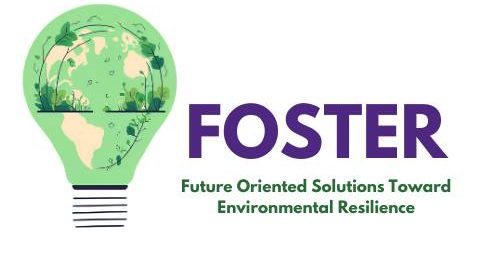

FOSTER: Future Oriented Solutions Towards Environmental Resilience
Proposal number: 101147867
Project consortium:
- ALDA – ASSOCIATION EUROPEENNE POUR LA DEMOCRAT, FR (Coordinator)
- CONSEIL DES COMMUNES ET REGIONS D’EUROPE, BE
- ISTITUTO PER LA RICERCA SOCIALE SCARL, IT
- UNION OF BULGARIAN BLACK SEA LOCAL AUTHORITIES, BG
- NOTUS, ES
- FOSTER EUROPE FOUNDATION FOR STRONGER EUROPEANAT IASIS, EL
- ASOCIATIA MUNICIPIILOR DIN ROMANIA, RO
- COMPARATIVE RESEARCH NETWORK EV, DE
Associated partners
- UNIVERSITAET FUER BODENKULTUR WIEN, AT
- NATIONALPARKGESELLSCHAFT NEUSIEDLER SEE – SEEWIN,AT
- ESTERHAZY BETRIEBE GMBH,AT
- EU FORDERAGENTUR GMBH, AT
- Human Rights Cities Network, BE
Funded: CERV-2023-CITIZENS-CIV (Citizens’ engagement and participation – 2023)
Duration: 24 months (Sept 2024 – Aug 2026)
Budget: 372.235,00 EUR
—————————————————————————————————————————
Changes in climate, profound innovation in digital technologies and abrupt geopolitical changes are long-term trends that are having a profound effect on the lives of EU citizens, and that are deemed to keep influencing Europeans’ lives for many years to come. These transformations are taking place at all levels, from grassroots politics to global power structures. In addition, such changes are the results of complex and interconnected socio-economic phenomena, binding together economic systems, politics, scientific innovation and sociocultural shifts. EU citizens are called to confront such changes and challenges on a daily basis, whether they are aware of it or not. On the other hand, politics and policymaking at all levels are called upon to address these complex and long-term challenges. It is crucial that both citizens and civil society at large participate in shaping the trajectory of their societies and the lives of the next generations. The FOSTER project will in fact contribute to “promoting citizens’ and representative associations’ participation in and contribution to the democratic and civic life of the Union”.
The project’s overall objective is to contribute to the development of governance frameworks that can effectively and inclusively address future environmental challenges.
Specific objectives:
- SO1: To improve the local management of climate change-related phenomena and foster foresight strategies and preventative local governance systems, contrasting the overuse of emergency mechanisms.
- SO2 To increase the local governments’ and civil society organisations’ capacity to foresee the future needs of a wide range of citizens who will be facing the consequences of climate change.
- SO3: To enhance the abilities, sense of responsibility, and confidence of citizens and civil society actors in shaping local policy-making processes, especially in relation to climate change and its consequences.
- SO4: To improve the spaces for dialogue and collaboration between civil society actors and local governments.
In order to achieve the aforementioned objectives, the project aims at creating bridges between citizens, civil society representatives and sub-national authorities for the creation of innovative foresight strategies and future-oriented governance frameworks. Through adequate tools and methodology, foresight exercises can be integrated in the regular work of local governments and, being involved in scenario planning, citizens can contribute with their perspectives and insights to shape these scenarios, fostering a sense of ownership and active involvement in decision-making.
FOLLOW US:
NEWS
